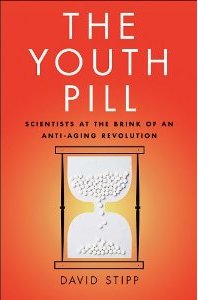August 25th, 2011 by Toni Brayer, M.D. in News, Research
No Comments »

 I usually choose not to write about the “new new scientific thing” that gets picked up by the press, because early research is usually not reproducible and good science takes a long time to validate as true. But since we know that mice and rats that are kept on low-calorie diets live 30% longer (and healthier) than their fat cohorts, I was interested in a new research compound, SRT-1720, that was shown to protect obese mice from diseases of obesity. Fat mice lived 44% longer if they were given this drug.
I usually choose not to write about the “new new scientific thing” that gets picked up by the press, because early research is usually not reproducible and good science takes a long time to validate as true. But since we know that mice and rats that are kept on low-calorie diets live 30% longer (and healthier) than their fat cohorts, I was interested in a new research compound, SRT-1720, that was shown to protect obese mice from diseases of obesity. Fat mice lived 44% longer if they were given this drug.
The “designer” drug works by Read more »
*This blog post was originally published at EverythingHealth*
July 17th, 2010 by Harriet Hall, M.D. in Better Health Network, Book Reviews, News, Opinion, Research
No Comments »

 Wouldn’t it be great if we could find a way to prolong our lives and to keep us healthy right up to the end? Ponce de León never found that Fountain of Youth, but science is still looking. What are the chances science will succeed? How’s it doing so far?
Wouldn’t it be great if we could find a way to prolong our lives and to keep us healthy right up to the end? Ponce de León never found that Fountain of Youth, but science is still looking. What are the chances science will succeed? How’s it doing so far?
In his new book The Youth Pill: Scientists at the Brink of an Anti-Aging Revolution, David Stipp tries to answer those questions. From the title of the book, I expected hype about resveratrol or some other miracle pill, but instead it is a nuanced, levelheaded, entertaining, informative account of the history and current state of longevity research. It makes that research come alive by telling stories about the people involved, the failures and setbacks, and the agonizingly slow process of teasing out the truth with a series of experiments that often seem to contradict each other.
Anti-aging can mean several things. Extending the average lifespan is not the same as extending the maximum lifespan. Extending lifespan is not the same as preventing the degenerative changes characteristic of aging. Read more »
*This blog post was originally published at Science-Based Medicine*
October 22nd, 2009 by Harriet Hall, M.D. in Better Health Network, Quackery Exposed
2 Comments »

We would all like to live longer. The most promising longevity research indicates that severe calorie restriction might extend life span, but such a diet is difficult to follow. Resveratrol, a phytochemical found in red wine, has been evaluated as a possible way out of the dilemma. When given to obese mice on a high calorie diet, it produced a number of changes associated with improved health, such as increased insulin sensitivity, and it increased survival. Perhaps by taking resveratrol you could eat as much as you want and get fat without suffering the usual consequences. Perhaps you could get the longevity benefits of severe calorie restriction without restricting calories. Read more »
*This blog post was originally published at Science-Based Medicine*
 I usually choose not to write about the “new new scientific thing” that gets picked up by the press, because early research is usually not reproducible and good science takes a long time to validate as true. But since we know that mice and rats that are kept on low-calorie diets live 30% longer (and healthier) than their fat cohorts, I was interested in a new research compound, SRT-1720, that was shown to protect obese mice from diseases of obesity. Fat mice lived 44% longer if they were given this drug.
I usually choose not to write about the “new new scientific thing” that gets picked up by the press, because early research is usually not reproducible and good science takes a long time to validate as true. But since we know that mice and rats that are kept on low-calorie diets live 30% longer (and healthier) than their fat cohorts, I was interested in a new research compound, SRT-1720, that was shown to protect obese mice from diseases of obesity. Fat mice lived 44% longer if they were given this drug.



 Wouldn’t it be great if we could find a way to prolong our lives and to keep us healthy right up to the end? Ponce de León never found that Fountain of Youth, but science is still looking. What are the chances science will succeed? How’s it doing so far?
Wouldn’t it be great if we could find a way to prolong our lives and to keep us healthy right up to the end? Ponce de León never found that Fountain of Youth, but science is still looking. What are the chances science will succeed? How’s it doing so far?







